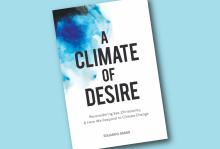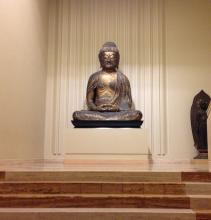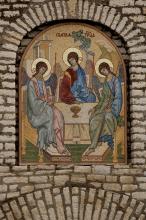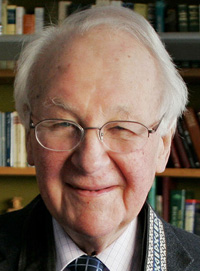desire

In deep thirst, a desert stag will tear
open saguaro ribs with his teeth
and gorge on succulent heart, living sap.
This morning desire and grief for You
are the same ache. Welcome, hurt.
Enter and feast on my flesh. Become love.

IF YOU’RE LIKE me, your first response to the title of Eduardo Sasso’s book was “What?!” But, as unusual as the pairing of climate change and sex is, Sasso proves that their association is fitting. A Climate of Desire argues that the challenge of today’s climate crisis is ultimately not about technology, science, or political will. Rather, like sex, it’s “about desire: about what we long for and about the consequences of our longings.”
Our longings have always been ripe for co-optation. Sasso’s book shows how, throughout history, from the tower of Babel to the tech frontier of modern California, people have been tempted to forsake their God-given humanity for an artificial substitute. Our problem today, though, is that our refusal to learn from the past comes with an exorbitant price tag. Fossil fuels have enabled the unrestrained indulgence of our misplaced desires, transforming our cities into engines of unprecedented ecological devastation.
In A Climate of Desire, Sasso reminds us that the Spirit-inspired imagination of ancient truth-tellers such as Jeremiah, Ezekiel, and Jesus himself has a great deal to offer us in our current predicament. Calling their contemporaries to repentance, these holy dreamers denounced the harlotry of cities and nations that were running after false gods of wealth and power. They proclaimed visions of the holy that bordered on the psychedelic and grasped that at the heart of injustice and violence is misplaced desire.
Sasso finds tremendous strength in these ancient voices. But he also gains inspiration from recent campaigns for civil rights and contemporary initiatives for ecological renewal, such as the Transition Network and the fossil-free divestment movement.

I just learned about the U-curve — the basic psychological insight that most people get happier around age 50.
Judging from a variety of survey data from multiple cultures, people tend to be happy in their 20s and early 30s before hitting a less-happy trough in their late 30s and 40s, then returning to happiness in their early 50s. The line graph for this looks like a “U” stretched out on both sides, or, if you prefer, like a smile.
The predominant explanation seems to be that when we are young, we are ambitious and optimistic.
We feel good physically and have our lives in front of us. By our 40s, we start to worry about things we have not done yet, stymied by the realization “this” might be all there is. But by our early 50s we move on toward thinking “this” is not so bad after all.
At 54, I’ll admit my own experience seems to fit the pattern. I have less energy, my career has likely plateaued, and my parents will probably soon need closer care, but I still feel more satisfied. Is this because I got enough of what I desired? Or is it, perhaps, because I stopped desiring so much, or at least started desiring different things?
I teach comparative religion, so I know who spoke most clearly about satisfaction and desire. The Buddha taught these Four Noble Truths:
- Life is dissatisfying.
- Dissatisfaction is caused by desire.
- Dissatisfaction will end only when the desires are extinguished.
- The way to extinguish desires is to follow spiritual discipline. (For the Buddha, spiritual discipline meant the Eightfold Path).
I’m not kidding anybody: I have not extinguished all my desires. And I do not have much spiritual discipline. But maybe life is adjusting my desires whether I asked for it or not.

Thought experiment: You are single. You’re eager for a sociable night out on the town. You step into a bar full of attractive people. You:
— See a hot someone across the room and think, I want to be all over him/her.
— See a hot someone across the room and think, I want him/her to think I am so appealing that they just want to be all over me.
Which one is lust?
The lust I heard about in church only ever dwelt on the first train of thought. This lust was an overwhelming desire for someone else, to the point of obsession, objectification, or infidelity. It was dirty, aggressive, mulled over in accountability groups and discussed in sermons of marriage and singleness. ... I didn’t relate to it at all.
In conversation with other close Christian women, I learned they didn’t really relate to it, either. We didn’t treat men or other women as objects of desire. We had hormones, sure, but they were … different. Sometimes we saw men as actively desirable, but not necessarily. We usually just wanted men to want us.
Sometimes we wanted them to want us really, really badly.
Sometimes we needed them to want us. Sometimes that was the only thing we could think about. Sometimes we’d fall into a prolonged pout if men who OBVIOUSLY SHOULD WANT US because we were HOT AND AWESOME, in fact, didn’t.
... Oh. Hmmm.
*Lightbulb*
Is it possible that lust works in multiple ways? Is it possible that the all-consuming desire to be desired is just as lustful as the all-consuming desire to have?

I WAS BROUGHT UP up on stories of my family's emigration to Russia from England in the 1850s and of the three generations we lived there and intermarried. My grandparents fled the upheavals of revolution in 1917, returning to England. Having drunk deeply from the springs of Russian spirituality, it is second nature to me to hear the scriptures with Russian ears. As Eastertide culminates at Pentecost (rounded out in the wonderful coda of Trinity Sunday), I find myself murmuring as a mantra the great injunction of St. Sergius of Radonezh, "Beholding the unity of Holy Trinity, to overcome the hateful disunity of this world!" The doctrine of the Trinity is no mere antiquity, but a beacon pointing to the future that God desires for the world. In the Trinity, "hateful disunity" can be transformed into life-in-communion; our life together as human beings incarnating our identity as ones made into the image and likeness of God. I will find myself doodling on my notepad the provocative claim of the Russian lay theologian Nikolai Fedorov: "Our social program is the dogma of the Trinity."
Taking in again the Trinitarian grammar of our prayer and faith, I will find myself reinvigorated for the task of forging a spirituality that, as a great Anglican priest Alan Ecclestone wrote, "takes its Trinitarian imagery more seriously than ever before, relating the creativity, the humanizing, and the unification of [humankind] in one growing experience of mutual love." This from a man who was a passionate political activist writing from the thick of gritty urban politics, not from an ivory tower.
DANIEL BELL'SThe Economy of Desire juxtaposes Christianity and capitalism, situating both in the context of postmodernity. The main argument of the book is that performing works of mercy—both corporal and spiritual—constitutes an alternative economy that can resist capitalism. Capitalism, in Bell's construal, is an economic system founded on voluntary contracts, private property, and an ideological regime where the rule of the market transcends the rule of law and disregards the reign of God in Christ.
The author draws on the work of philosophers Michel Foucault and Gilles Deleuze to set up a philosophical framework for talking about power and desire. His treatment of Foucaultian insights on the ubiquity of power is meant to decenter the state as the primary engine of social change. Deleuze's work builds on Foucault's argument by conceptualizing people—and society at large—as flows of desire. Taken together, the claim is potentially but not necessarily democratic: Social structures organize desire in particular ways and are malleable due to the fact that power resides not only in the state or market but in the relational networks of everyday people. Under this account, for instance, the typical presidential election is not simply about securing votes, but about directing the aspirations and actions of the electorate toward a collective passion for growing the economy, expanding the middle class, and so on. Capitalism, for Bell, secures our loyalty because it shapes what we do as well as what we desire.
A few strengths of the book stand out. It contains a lucid discussion of the difference between commutative (fair contracts) and distributive (fair proportion of wealth, power, and other goods) justice within society. The scope of the author's analysis is also impressive. Bell substantively engages the arguments of diverse figures from Adam Smith, Milton Friedman, and Friedrich von Hayek to Augustine, Thomas Aquinas, and Martin Luther. Moreover, Bell's contention that proponents of capitalism effectively deny the possibility of social holiness is worth the price of the book.
 [Editors' note: Rev. John Stott, one of the world's most influential evangelical figures over the past half-century, died this Wednesday at age 90. Rev. Stott served as a contributing editor for Sojourners magazine, when we were known as The Post American, and wrote this article for the November/December, 1973 issue of the magazine. We will always remember Rev. Stott for his profound contributions to our community and the Church.]
[Editors' note: Rev. John Stott, one of the world's most influential evangelical figures over the past half-century, died this Wednesday at age 90. Rev. Stott served as a contributing editor for Sojourners magazine, when we were known as The Post American, and wrote this article for the November/December, 1973 issue of the magazine. We will always remember Rev. Stott for his profound contributions to our community and the Church.]
It seems to be a characteristic of the Anglo-Saxon mind to enjoy inhabiting the "polar regions" of truth. If we could straddle both poles simultaneously, we would exhibit a healthy balance. Instead, we tend to "polarize". We push some of our brothers to one pole, while keeping the other as our own preserve.
What I am thinking of now is not so much questions of theology as questions of temperament, and in particular the tension between the "conservative" and the "radical."